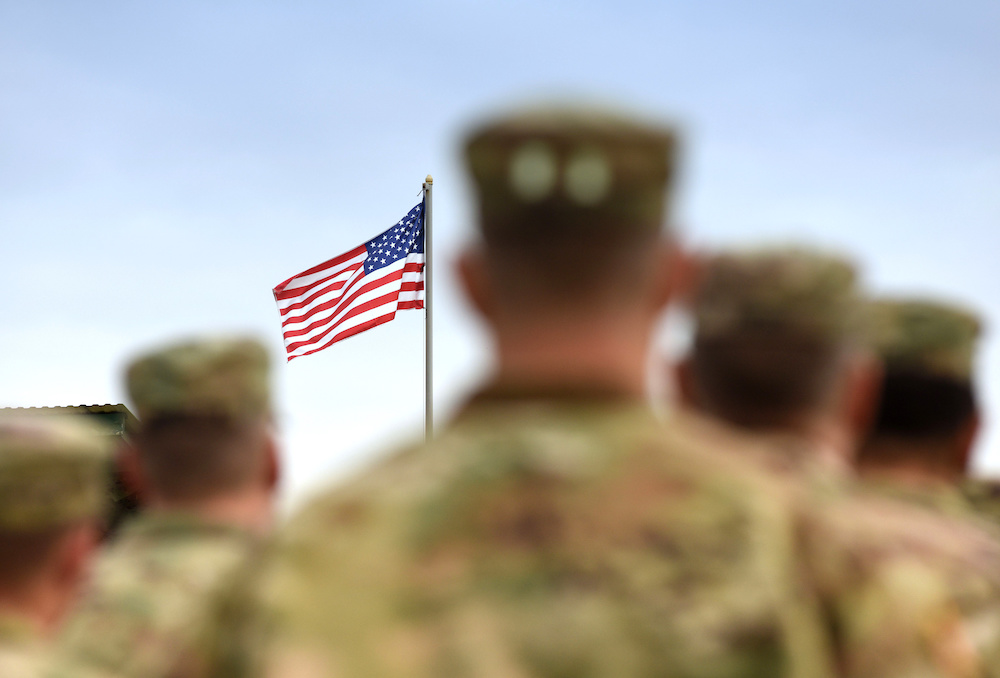You might have previous experience assisting veterans who are in recovery. Maybe you know someone in your personal life who has struggled with remaining sober while they worked through trauma related to their service. There is no denying that veterans face increased stigma and societal expectations that can cause roadblocks during recovery. You can change the life of a veteran by being willing to listen and empathize with the struggles they are facing due to their history of service. Veterans can face additional challenges that others within the
sober living community may not fully understand.
Veterans face an enormous amount of stress, both during their active careers and after they’ve returned home. The National Surveys on Drug Use and Health reported that since 2001, the average percentage of military personnel diagnosed with a substance abuse disorder has risen from 3.7% to 12.7%. A 2007 study from Stanford University also revealed a treatment gap among veterans at 2.8%, which may not seem significant until you take into account that there are tens of millions of active and retired services members. Veterans are a vulnerable demographic, and everyone in a position to help can be taking steps to ensure that they provide support for the men and women who have dedicated their lives to serving our country.
Risk Factors and Challenges
Acclimating to civilian life after a stint in the military can be a challenge. The change to routine and lack of structure can often combine with lingering mental or physical effects of a person’s service, making them more likely to turn to alternative coping methods, such as self-medication. Military personnel can often meet the criteria for multiple risk factors associated with substance abuse, including:
Working or living in a war zone
Chronic pain
Having a substance or mental health disorder (e.g., Post-traumatic stress disorder (PTSD), anxiety, or depression)
Traumatic brain injury (TBI)
Military personnel are also more likely to drink, which can lead to higher rates of dependency. In a 2007 article published by Psychological Services, Stanford University reported that 56.6% of veterans drank alcohol routinely. There is also a high number of veterans arrested for drug-related charges. According to the U.S. Department of Justice, Bureau of Justice Statistics, nearly half (46%) of all incarcerated veterans had charges related to violating substance abuse laws. Up to 61% of incarcerated veterans have also been diagnosed with a substance abuse disorder.
Homelessness and Lack of Support
It is impossible to know precisely how many veterans experience
unstable living conditions. The U.S. Department of Veterans Affairs (VA) estimates that they make up approximately 8.8% of the homeless population. There are many causes of veteran homelessness, including a shortage of affordable housing and complications related to physical or mental disorders.
A primary cause of homelessness is the lack of a support system in the lives of veterans returning to civilian life. The National Institute of Drug Abuse reports that approximately 70% of the veteran homeless population have a substance abuse disorder. This means that there may be plenty of opportunities for you to become a part of a new sober support structure that includes therapists, peer support, and the staff within a sober living community.
How Social Expectations and Stereotypes Can Harm
Not everyone has personal experience with the military or knows someone who served. If the only knowledge you have about veterans came from secondhand sources, it is crucial to be aware that the information you have may involve stereotypes or assumptions. By challenging stigmas and verifying facts, you can be a greater help to the veterans around you.
You can help combat the stigmas associated with veterans asking for assistance by countering erroneous assumptions. A few harmful stereotypes associated with the mental and physical health of veterans include:
Veterans diagnosed with PTSD are violent, dangerous, and can snap at any moment
Being diagnosed with a substance abuse disorder means they have tarnished the sanctity of their previous role as a soldier
Getting help means you are weak
Giving Hope to the Veteran Community
You can be a source of hope to the veterans within your sober living community by educating yourself about the difficulties they face and learning skills you can pass along. It only takes one small light to lead someone out of darkness, and you can be a brilliant lantern within your community of recovery. It is an honor and a privilege to support those who serve our country.
Whether or not you have a personal connection with the military, there are a few facts you should understand. Veterans face an uphill battle when overcoming substance abuse and related disorders. There are societal expectations and possible traumas that do not apply to civilians in the same situation. Safety Net Recovery® is helmed by people who have intimate knowledge of how the military experience can affect recovery. The sober living community, of which you are a part, is designed to provide resources and compassionate support for anyone who needs it. You can be part of creating an encouraging environment for veterans as they work through recovery. You can become an advocate for the veterans you encounter in your work and personal life by educating yourself and sharing skills with them that can improve their quality of life. For more information about how you can make a difference, reach out to Safety Net Recovery® today at (770) 432-9774.


aid for ukraine says:
I’m not that much of a internet reader to be honest but your blogs really
nice, keep it up! I’ll go ahead and bookmark your website to come back later.
All the best aid for ukraine